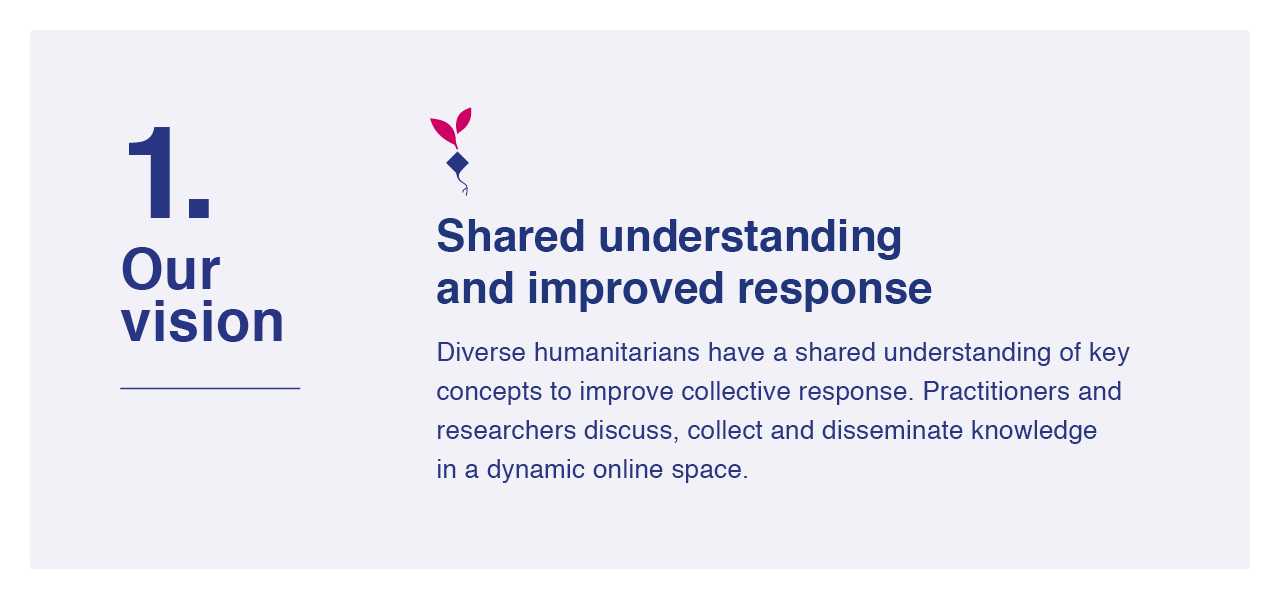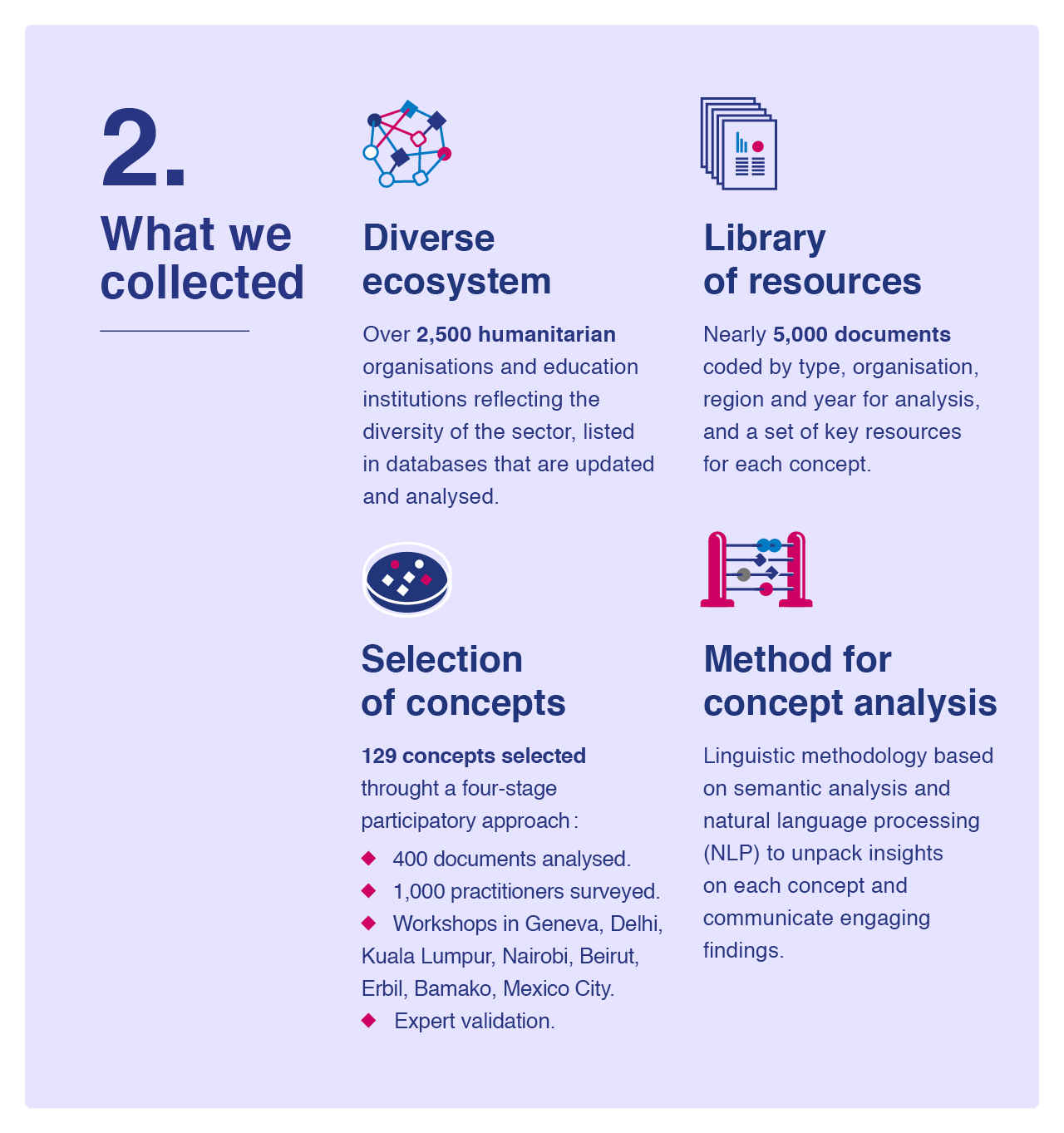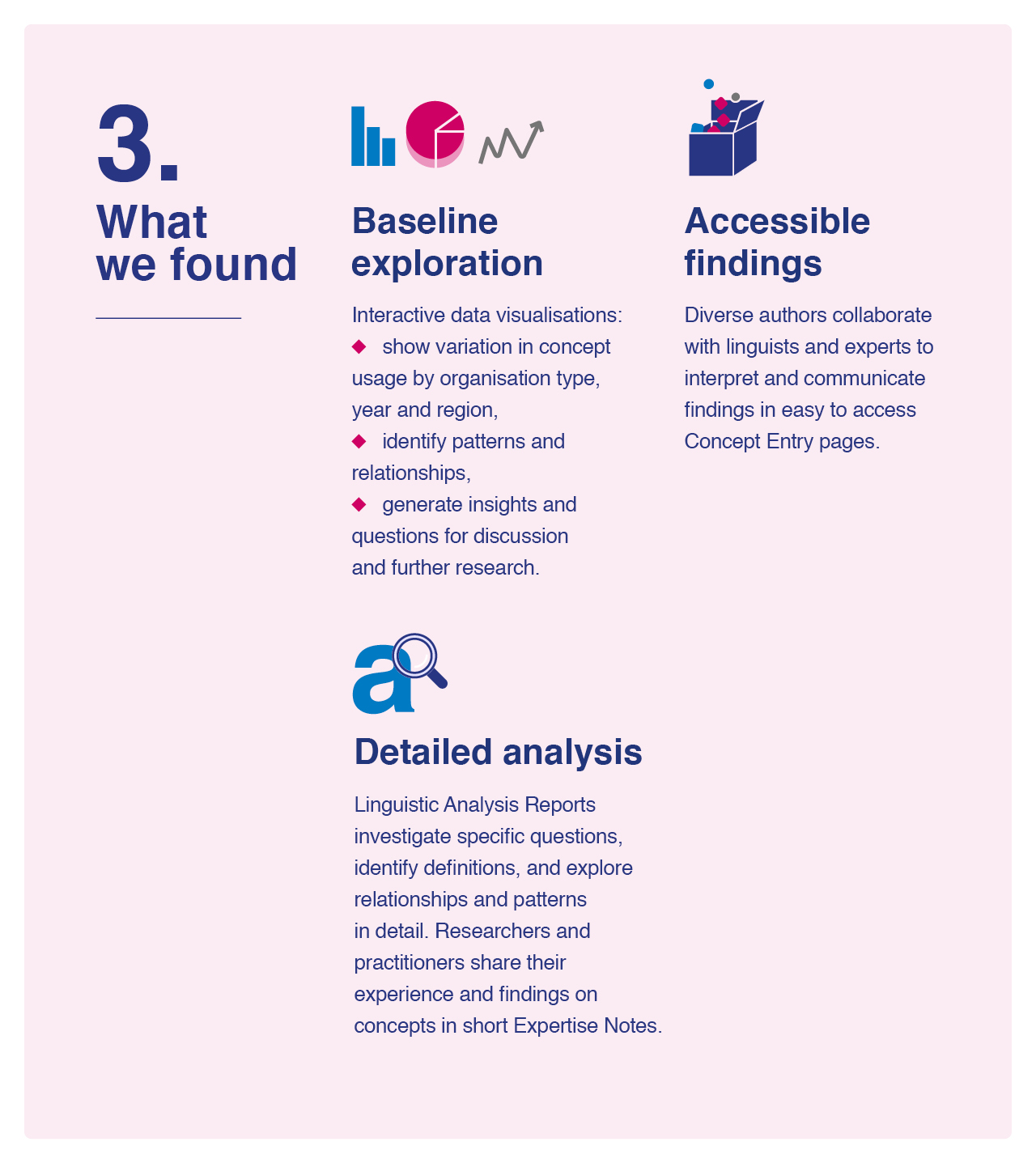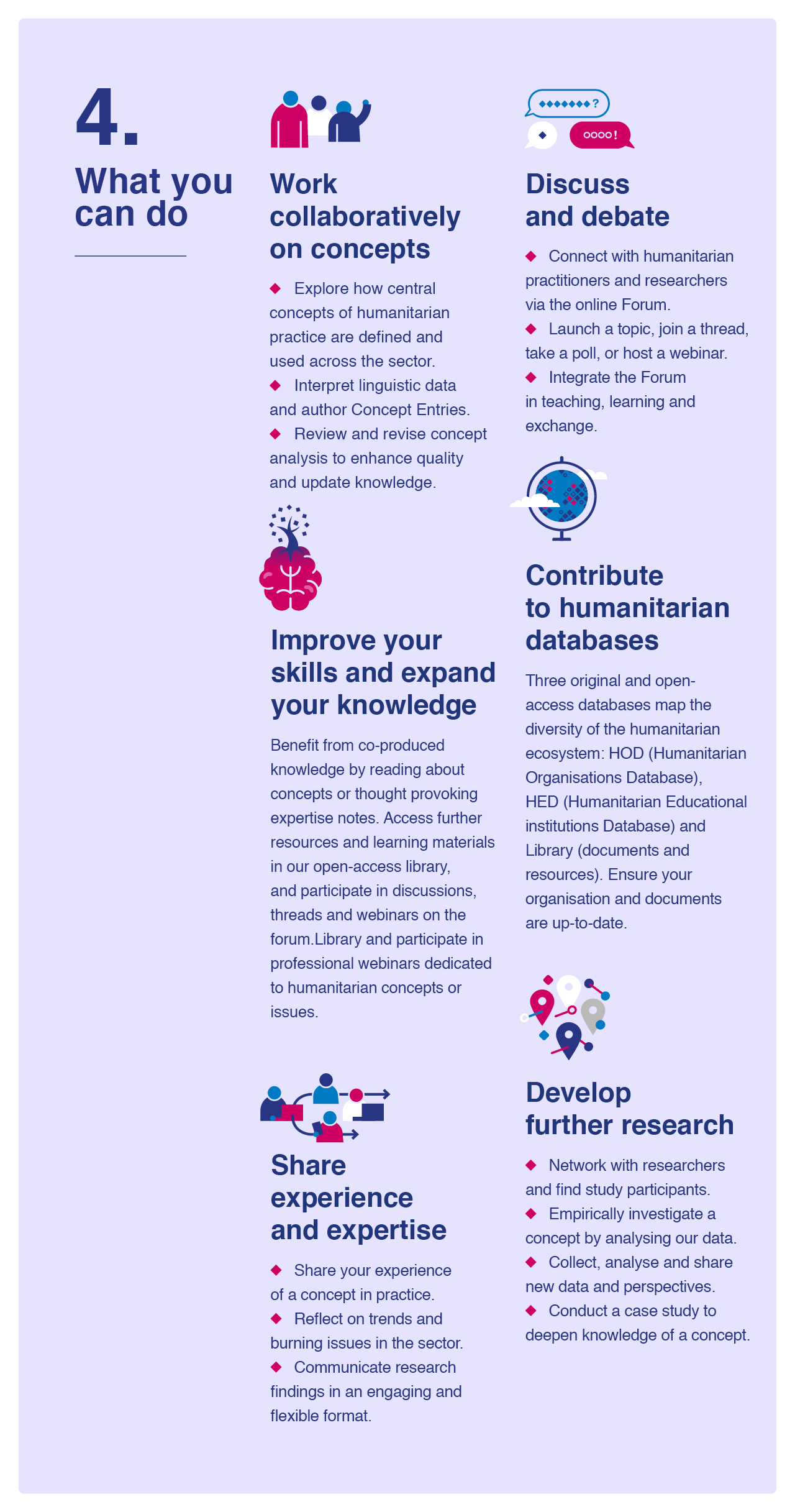Overview
The Humanitarian Encyclopedia offers this inclusive online space for dialogue and promotes co-production of new knowledge to enhance collaboration in future humanitarian responses.
The Humanitarian Encyclopedia is the product developed by humanitarian professionals and academics aware of the necessity of speaking the same clear language, sharing knowledge as a public good and co-producing new forms of knowledge to guide future humanitarian responses.
The Humanitarian Encyclopedia is:
- A living repository of co-produced humanitarian concepts and expertise notes
- An open source library of relevant humanitarian resources
- A dynamic mapping of humanitarian actors
- An interactive platform with online forums, webinars, and e-learning modules
Collaborative response to humanitarian crises
In modern humanitarian crises, a collective response that is timely, adequate and well coordinated is imperative to be able to adapt to an ever-changing environment and more and more complex situations. Today, collaboration between the first responders, which have increasingly become local actors from civil society organisations or public services, and international humanitarian organisations is determinant. The recognition and inclusion of these new actors in the humanitarian system requires the need to create a common understanding and formulation of the key humanitarian concepts to build bridges and promote an open dialogue to improve collective humanitarian action.
Online inclusive space for dialogue and exchange
Creating an online space where humanitarian practitioners, academics, researchers, local actors and international organisations can share evidence, knowledge and information to make informed decisions is a valuable resource and contributes to public good. The Humanitarian Encyclopedia promotes open dialogue and mutual respect. The creation of an interactive, online resource, providing the environment and tools for producing, curating, and interacting with knowledge is aligned with the goals of digital humanities, and creates new ways of study that involve collaborative, transdisciplinary, and online research and publishing.
Pluralistic co-production of knowledge
The diversity of perspectives and views on humanitarianism guided by history, academic and professional disciplines, culture, religion, organisational cultures and contexts is a richness that can be used to understand the various meanings of key humanitarian concepts. Recognising diversity, pluralism and sometimes consensus will help build a common source of knowledge. This new knowledge is guided by humanitarian professionals’ needs, and co-produced with academics from various disciplines such as history, anthropology, politics, sociology, and linguistics.





